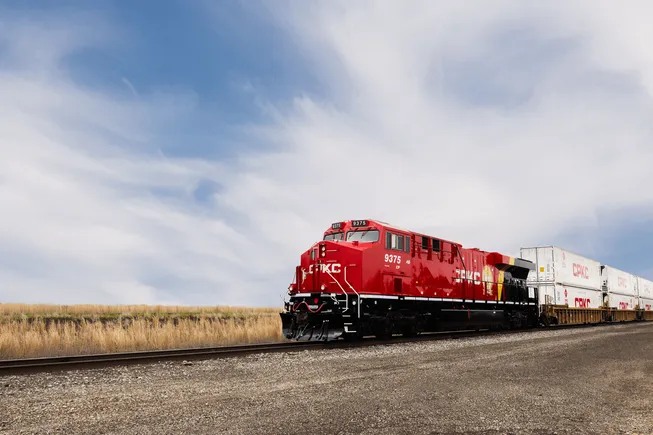Canadian National Railway and Canadian Pacific Kansas City will conduct separate contract talks Wednesday with the Teamsters Canada Rail Conference in pursuit of a new labor deal, a union spokesperson confirmed.
The parties agreed to reopen negotiations at the urging of recently appoi nted Canadian Minister of Labour and Seniors Steven MacKinnon, who met with the railroads and the union on Monday.
Discussions between the parties began last November but have failed to yield a new contract to replace the agreement that expired at the end of last year.
Progress on a deal faced another hurdle after former Labour Minister Seamus O’Regan requested the Canada Industrial Relations Board investigate whether a work stoppage would impact Canadians’ health and safety.
The board is expected to announce its determination by Friday.
While railroad workers cannot legally strike until 72 hours after the industrial relations board makes its ruling, the Monday meeting was meant to get the parties to resume talks and “to discuss increasing the pace and frequencies of discussions at both companies,” the union spokesperson said. Canadian National and CPKC, the country’s two largest railroads, seek concessions on crew scheduling and fatigue management, according to the union.
“A work stoppage can be avoided, provided both companies are willing to return with fair and equitable proposals,” the union spokesperson said.
Before the parties agreed to resume talks, CPKC President and CEO Keith Creel said during a July 30 earnings call the railroad requested the sides enter binding arbitration. The union, which represents nearly 10,000 railroad workers, rejected the request.
Creel told analysts it was “most probable that we’ll have a work stoppage,” noting it could happen sometime at the end of August.
A strike by Canada’s railroad workers would disrupt the daily movement of more than 900,000 metric tons of goods on Canada’s railways.
Several industry groups, including those representing the U.S. and Canadian agricultural industries, are hoping for a quick resolution to the labor talk stalemate.
“With the prospect of a large crop on the horizon, the potential rail service disruption could have critical repercussions, from delayed farmer payments to jeopardizing Canada’s reputation as a reliable global supplier,” Ian Boxall, president of the Agricultural Producers Association of Saskatchewan said in a statement.
The Virgina-based National Feed and Grain Association said in a letter to the Canada Industrial Relations Board that disruptions to Canadian railways “would delay the delivery of agricultural goods and a strike could lead to potential food shortages and higher prices for consumers.”
If the parties can’t come to an agreement, some are pushing Canada’s prime minister to intervene. North Dakota Sen. Kevin Cramer sent a letter in July urging Prime Minister Justin Trudeau to “take immediate action to prevent a strike,” adding that “the free flow of goods and services between our countries must continue without interruption.”
Sarah Zimmerman contributed to this story.



